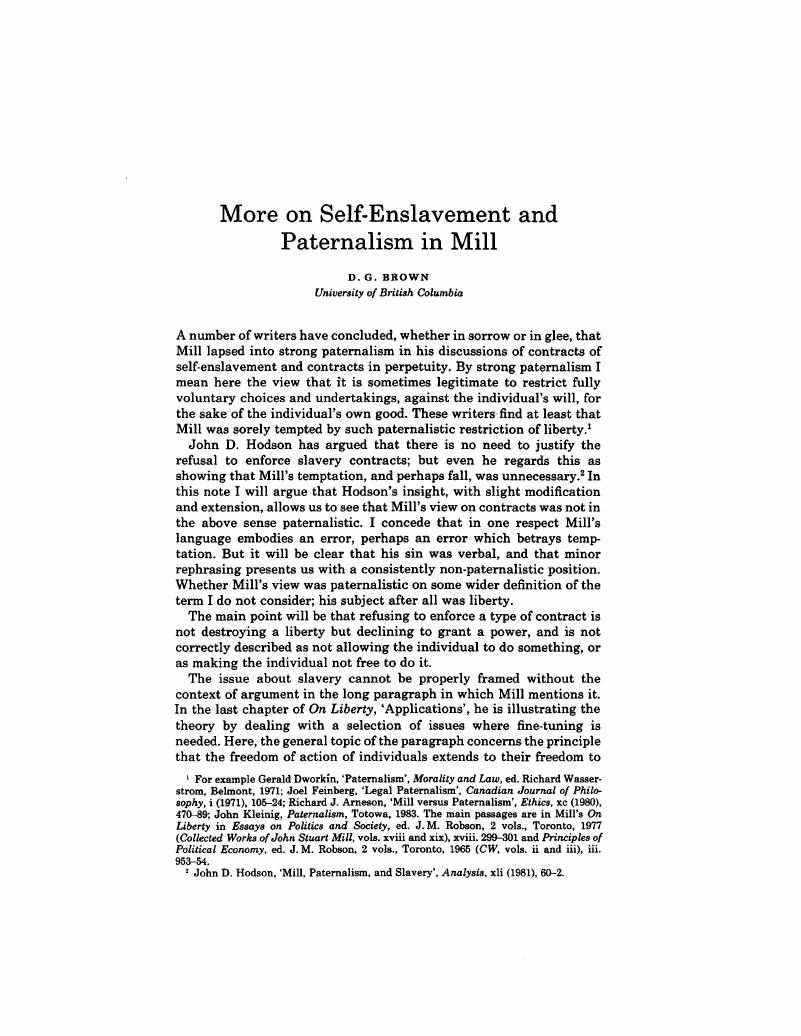Published online by Cambridge University Press: 26 January 2009

1 For example Dworkin, Gerald, ‘Paternalism’, Morality and Law, ed. Wasserstrom, Richard, Belmont, 1971Google Scholar; Feinberg, Joel, ‘Legal Paternalism’, Canadian Journal of Philosophy, i (1971), 105–24CrossRefGoogle Scholar; Arneson, Richard J., ‘Mill versus Paternalism’, Ethics, xc (1980), 470–89CrossRefGoogle Scholar; Kleinig, John, Paternalism, Totowa, 1983Google Scholar. The main passages are in Mill, 's On Liberty in Essays on Politics and Society, ed. Robson, J. M., 2 vols., Toronto, 1977Google Scholar (Collected Works of John Stuart Mill, vols, xviii and xix), xviii. 299–301Google Scholar and Principles of Political Economy, ed. Robson, J. M., 2 vols., Toronto, 1965Google Scholar (CW, vols, ii and iii), iii. 953–54.Google Scholar
2 Hodson, John D., ‘Mill, Paternalism, and Slavery’, Analysis, xli (1981), 60–2.CrossRefGoogle Scholar
3 Ibid.
4 Kleinig, , p. 159.Google Scholar
5 Principles of Political Economy (CW), iii. 953–54.Google Scholar
6 Hodson, , 62.Google Scholar
7 Ibid., 61.
8 Regan, Donald H., ‘Paternalism, Freedom, Identity, and Commitment’, Paternalism, ed. Sartorius, Rolf, Minneapolis, 1983.Google Scholar
9 Arneson, , 479–89.Google Scholar
10 Since the acceptance of this note for publication, I have found a similar defence of Mill's consistency in Haksar, Vinit, Equality, Liberty and Perfectionism, Oxford, 1979, pp. 252–56.Google Scholar